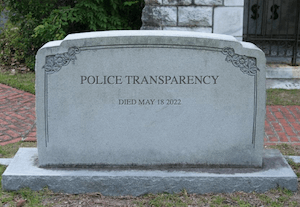(WBRE/WYOU) — 95 days and counting without a State Budget in Pennsylvania.
The budget deadline of June 30 has passed. With each passing day, the impact of the budget impasse is being felt by a wide variety of entities, including county and local governments, nonprofits, and school districts.
The I-Team's Andy Mehalshick talks with the superintendents of the three largest school districts in NEPA: Hazleton, Scranton, and Wilkes-Barre, about the impact the budget battle is having on their districts.
It's all part of a Mehalshick Files podcast on the 28/22 Now CTV App. Andy reports live on 28/22 News.
It's day 95 without a state budget in Pennsylvania, and there's no end in sight to the stalemate.
The financial pain from that budget stalemate is being felt by a multitude of entities across the commonwealth, including county governments, municipalities, and school districts.
The I-Team's Andy Mehalshick is working the story and joins us to discuss whether there is any end in sight.
The short answer is no.
In fact, the state lawmakers, Republicans and Democrats, whom 28/22 News spoke with, say they have no idea when the money will start to flow again from Harrisburg. That fact alone has many local officials, including school superintendents, watching very closely.
"So it's really short-term, tough short-term decisions that we have to make right now for long-term commitment to our children," explained Dr. Brian Costello, superintendent, Wilkes-Barre Area School District.
28/22 News interviewed the superintendents of the three largest school districts in northeastern Pennsylvania for a "Mehalshick Files" podcast on the 28/22 Now app: Dr. Bran Uplinger from Hazleton, the largest district, Dr. Erin Keating from Scranton, the second largest, and Dr. Brian Costello from the Wilkes-Barre Area School District, the third largest.
Wilkes-Barre received only about half of its $100 million from the state when the state budget process stalled.
'We hired back in May-June teachers, academic coaches, interventionists to help support our students for this upcoming year, but we haven't been able to start them all until the budget gets passed because without that budget, we would not be able to afford those additional resources," said Costello.
The Scranton School District receives about $140 million from the state. Dr. Keating says they have already halted programs.
"So we are at the point where we have cut after-school, and we have cut the before-school programming. We are currently not allowing field trips. We've halted professional development. Essentially, right now, if it's not zero dollars, it's not happening," expressed Dr. Erin Keating, Superintendent, Scranton School District.
Hazleton is still holding its own financially, thus far, despite the budget stalemate. It receives around $157 million from the state, but Dr. Uplinger says they have identified programs that could be cut.
"Those programs, maybe school or after school," stated Uplinger.
"They're so vital for so many families," voiced Mehalshick
"They're really important for those families that don't have that babysitter at home, so we provide those services. Again, that's just one," concerned uplinger.
The key point of contention in the budget stalemate centers around the use of Pennsylvania's $11 billion cash reserve.
Governor Shapiro issued a statement on the budget stalemate:
"Let me be clear. I introduced the state budget 241 days ago, and during that time period, the State Senate Republicans, who run the State Senate, not Leader Costa, have only managed to come to work 29 days. They've literally only worked 29 session days. Again, I introduced the budget 241 days ago. I think they've got to stop prolonging this to play politics, which is clear what they're doing. They're hurting real people, from our counties to our school districts, as a result of their games. Note that there is $11 billion in a state surplus. This should not be hard. My budget is balanced. It cuts taxes. It makes important investments, and it's long past time for the state senate to come back to work, put 26 votes together, and send a package to the House that can actually pass the House and reach my desk," Gov. Shapiro said.
"Listen, you've got to propose a budget. You've got to vote on a budget. You've got to sign a budget. I can do two of those three things. The Senate has to show up for work and do its job, which is actually to vote on a budget. And the longer they delay and play political games, the more people in Pennsylvania will be hurt. They basically have one job as legislators, to pass a budget, and they haven't done it yet, and I think they've got to come back to work and get it done," Gov. Shapiro continued.
